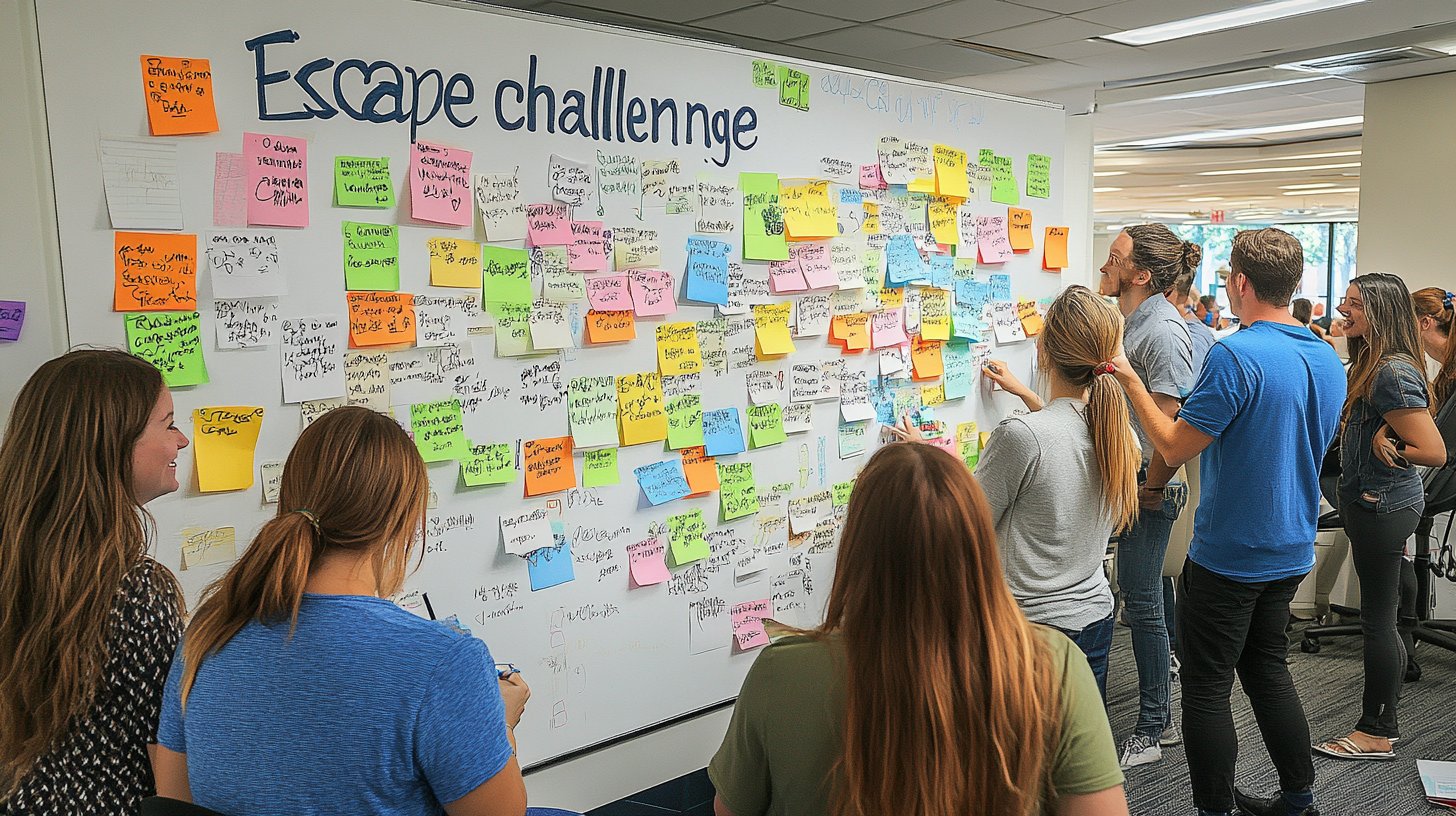Building a high-performing team is not just about bringing together individual talents. You are looking for team members who can collaborate effectively while adding real value to your projects. This process often raises questions: how do you align skills with objectives? How can you foster a positive dynamic while ensuring productivity?
Your needs don’t stop there. You want a team that shares your values, understands your priorities, and remains autonomous in its operations. Finding this balance can seem complex, but with the right strategies, you can assemble a team capable of overcoming your professional challenges. Let’s explore the key steps to achieve this.
Defining Clear Objectives
The first step in building a high-performing team is to establish clear objectives. This enables each member to understand the direction of the team and what needs to be accomplished. It ensures that everyone knows their specific responsibilities.
A well-defined objective serves as a compass and motivates the entire group to focus on collective success. Tracking progress and adjusting the action plan becomes easier when necessary.
Setting Priorities
Once objectives are defined, it becomes essential to set clear priorities. Deciding what matters most helps avoid spreading efforts too thin and ensures that resources are allocated effectively. For instance, if a task requires immediate completion, it will receive priority attention.
Breaking goals into intermediate milestones can make them less daunting. Every step achieved will boost the team’s motivation and bring them closer to the ultimate goal.
Selecting the Right Technical and Soft Skills
A crucial aspect of building a strong team lies in carefully selecting both technical skills and soft skills. Technical skills relate to the specific ability to perform work-related tasks, while soft skills encompass communication, stress management, and teamwork.
Technical Skills: Essential for Certain Roles
For some positions, technical skills are indispensable. For example, a software developer must master the programming languages required for the project. Possessing the right technical skills enables these professionals to contribute effectively to the team’s progress.
These skills also allow for solving complex problems with expertise, reducing the risk of costly errors.
The Importance of Soft Skills
However, soft skills should not be overlooked. Qualities such as communication, empathy, and conflict resolution ensure a healthy and collaborative work environment. A team equipped with strong soft skills is better prepared to handle inevitable tensions and maintain high morale.
Thus, when building a team, considering both technical skills and soft skills is essential.
Promoting Organizational Alignment
Organizational alignment means ensuring that each team member adheres to the company’s values and culture. Cohesion around these elements strengthens unity and aligns individual behaviors with collective expectations.
Achieving this alignment requires organizing training sessions or team-building activities. These initiatives foster mutual understanding and encourage shared commitment to the company’s goals.
Encouraging Team Autonomy
Fostering team autonomy enhances efficiency. By empowering team members to make certain decisions, they feel more responsible and invested in their tasks. This autonomy serves as a source of motivation and often leads to remarkable results.
Moreover, well-structured autonomy eliminates micromanagement. It allows leaders to focus on strategic tasks rather than constantly monitoring everyone’s actions.
Organizational Support: The Invisible Pillar
Strong organizational support plays a vital role. Employees who feel recognized and appreciated for their work tend to show greater dedication. This support can take various forms, such as encouragement, proper tools, or continuous training.
This positive environment nurtures trust and drives a desire to actively contribute to the team’s success.
Equitable Task Distribution
For optimal functioning, a team must adhere to fair and balanced task distribution. Everyone should know their roles and responsibilities to avoid duplication of efforts and resource wastage.
An equal workload distribution ensures that no one feels overwhelmed while others lack engagement. This also leads to higher job satisfaction.
Appropriate Delegation
Proper delegation facilitates the achievement of objectives. Identifying individual strengths allows each member to shine in their areas of expertise. This ensures that talents are used productively, making the entire process smoother and more intuitive.
Effective delegation also provides opportunities for personal growth, encouraging the acquisition of new skills within the team.
Efficient Leadership
Efficient leadership is the cornerstone of successful task distribution. A competent leader knows how to guide their team, provide clear direction, and offer constructive feedback. This fosters a positive dynamic where collaboration leads to tangible gains.
Transparent leadership inspires trust and promotes a healthy work environment conducive to innovation and cooperation.
Open Communication
Open communication deserves special mention when it comes to building a strong team. Sharing ideas openly and asking questions without fear facilitate quick problem resolution and pave the way for innovation.
Creating a space where everyone feels heard significantly enhances overall team functionality. Transparency reduces misunderstandings and frustrations, two major obstacles to optimal performance.
Frequent Feedback
Good communication includes regular and constructive feedback. These exchanges help everyone continuously improve by identifying strengths and areas for development.
Honest feedback sessions reinforce engagement and keep all members aligned with the team’s objectives.
Modern Communication Tools
To support open communication, using modern technological tools simplifies daily interactions. Platforms like Slack or Microsoft Teams enable document sharing, virtual meetings, and instant updates for everyone.
These tools help maintain constant connection among team members, even remotely, fostering better collaboration and synchronization.
Engagement and Team Cohesion
Maintaining engagement and team cohesion is fundamental to sustaining a high-performing group. An engaged team stays motivated despite challenges and works together to overcome them.
This cohesion relies on mutual trust, a shared goal, and respect for individual contributions. Investing time in strengthening these aspects builds strong and lasting bonds.
Team-Building Activities
Team-building activities are excellent opportunities to enhance engagement and team cohesion. Whether it’s sports sessions, collaborative problem-solving games, or casual dinners, these moments shared outside the strict work setting strengthen relationships.
These experiences uncover previously unknown affinities, improving understanding and long-term collaboration.
- Establish clear objectives
- Choose individuals with complementary technical skills and soft skills
- Ensure organizational alignment
- Grant some degree of work autonomy
- Maintain open and transparent communication
- Encourage engagement and team cohesion








